Category: neuroscience – Page 369
Why We Die: The New Science of Aging and the Quest for Immortality (Audio Summary)
Please consider adding this book to your collection. The more places wisdom is preserved, the better!
https://www.amazon.com/Why-We-Die-Sci?tag=lifeboatfound-20…
Death — the ultimate enigma that has haunted humanity since the dawn of consciousness. In \.
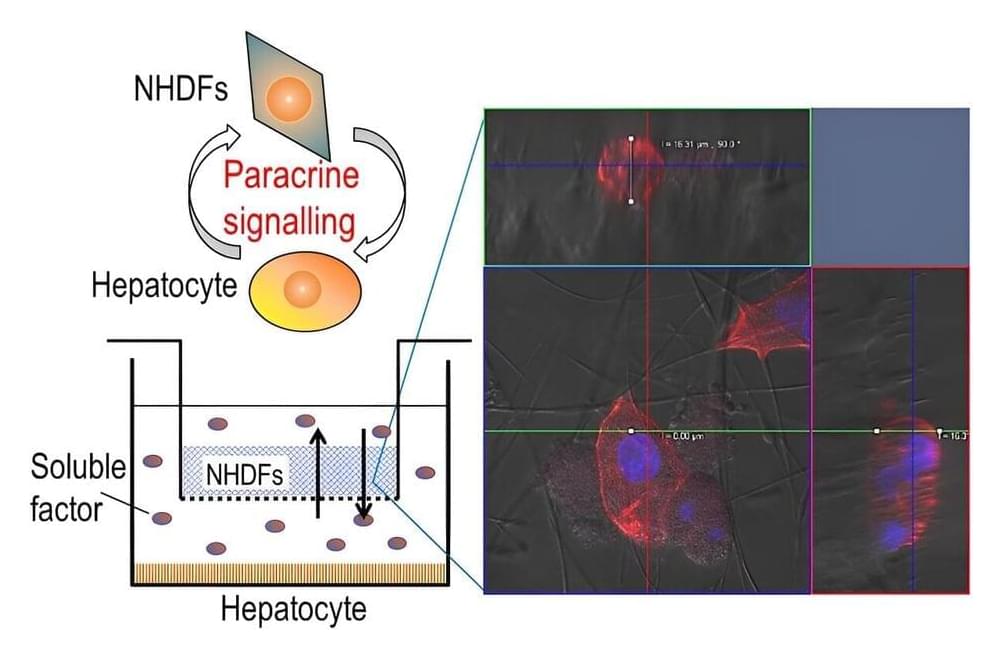
Novel silica nonwoven fabric scaffold enhances understanding of cell-to-cell interactions
Communication and coordination among different cells are fundamental aspects that regulate many functions in our body. This process, known as paracrine signaling, involves the release of signaling molecules by a cell into its extracellular matrix (ECM) or surroundings to communicate changes in its cellular processes or the local environment. These signaling molecules are then detected by neighboring cells, leading to various cellular responses.
For instance, during cell/tissue injury, the paracrine signaling process releases growth factors that signal nearby stem cells to assist in tissue repair in the form of scar tissue formation or blood clotting. Similar processes occur in the regulation of other vital functions, such as digestion, respiration, and reproduction. Additionally, paracrine signals influence the expression and activity of enzymes involved in drug metabolism and play a role in drug–drug interactions.
The signaling molecules, which may contain proteins and genetic material, are transported within tiny vesicles called exosomes. These vesicles serve as valuable biomarkers for various diseases and can even be engineered to carry drugs, making them a highly effective targeted drug delivery system. Notably, the hormone oxytocin and the neurotransmitter dopamine are paracrine messengers.

Study reveals RNA’s unknown role in DNA damage repair
A multi-institutional team of researchers, led by Georgia Tech’s Francesca Storici, has discovered a previously unknown role for RNA. Their insights could lead to improved treatments for diseases like cancer and neurodegenerative disorders while changing our understanding of genetic health and evolution.
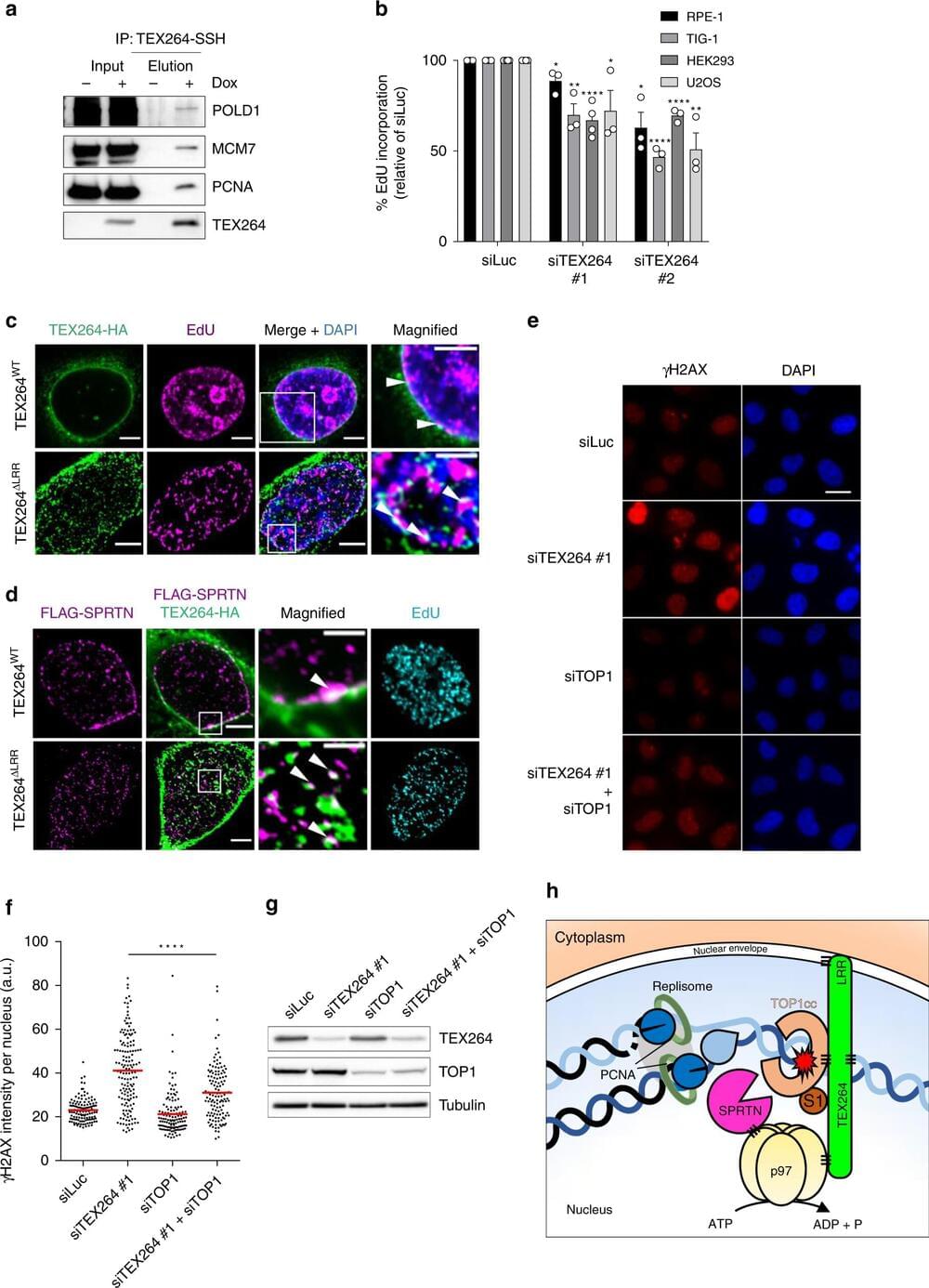
Scientists discover ‘toolkit’ to fix DNA breaks associated with aging, cancer and motor neuron disease
A new “toolkit” to repair damaged DNA that can lead to aging, cancer and motor neuron disease (MND) has been discovered by scientists at the Universities of Sheffield and Oxford.
Published in Nature Communications, the research shows that a protein called TEX264, together with other enzymes, is able to recognize and “eat” toxic proteins that can stick to DNA and cause it to become damaged. An accumulation of broken, damaged DNA can cause cellular aging, cancer and neurological diseases such as MND.
Until now, ways of repairing this sort of DNA damage have been poorly understood, but scientists hope to exploit this novel repair toolkit of proteins to protect us from aging, cancer and neurological disease.
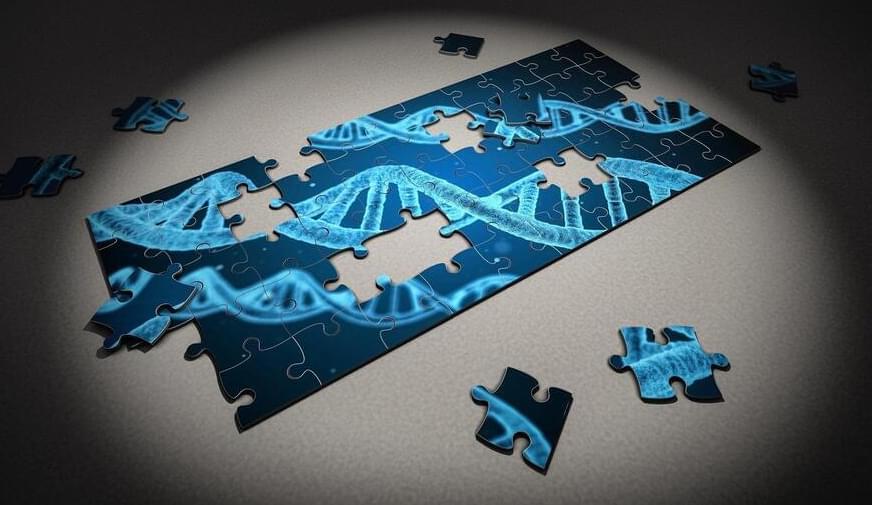
Breaks in ‘junk’ DNA give scientists new insight into neurological disorders
Junk DNA could unlock new treatments for neurological disorders as scientists discover its breaks and repairs affect our protection against neurological disease.
The research from the University of Sheffield’s Neuroscience Institute and Healthy Lifespan Institute gives important new insights into so-called junk DNA and how it impacts on neurological disorders such as Motor Neuron Disease (MND) and Alzheimer’s.
Until now, the repair of junk DNA, which makes up 98% of DNA, has been largely overlooked by scientists, but the new study published in Nature found it is much more vulnerable to breaks from oxidative genomic damage than previously thought. This has vital implications on the development of neurological disorders.
Overthinking what you said? It’s your ‘lizard brain’ talking to newer, advanced parts of your brain
We’ve all been there. Moments after leaving a party, your brain is suddenly filled with intrusive thoughts about what others were thinking. “Did they think I talked too much?” “Did my joke offend them?” “Were they having a good time?”
In a new Northwestern Medicine study, scientists sought to better understand how humans evolved to become so skilled at thinking about what’s happening in other peoples’ minds. The findings could have implications for one day treating psychiatric conditions such as anxiety and depression.
“We spend a lot of time wondering, ‘What is that person feeling, thinking? Did I say something to upset them?’” said senior author Rodrigo Braga. “The parts of the brain that allow us to do this are in regions of the human brain that have expanded recently in our evolution, and that implies that it’s a recently developed process. In essence, you’re putting yourself in someone else’s mind and making inferences about what that person is thinking when you cannot really know.”
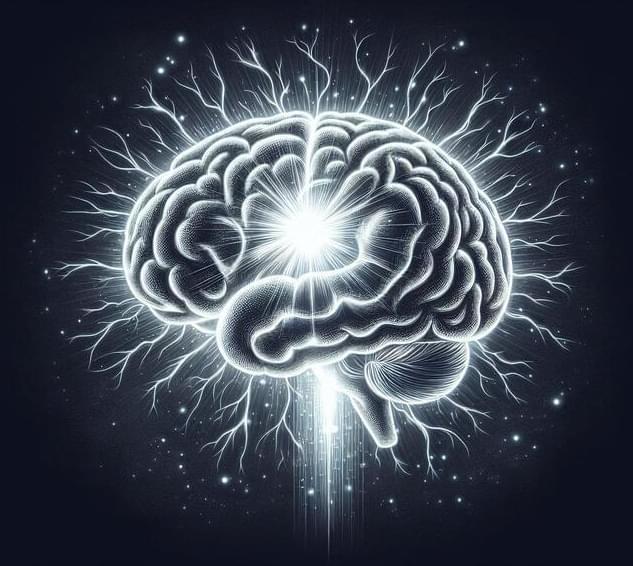
New insights into sleep uncover mechanisms with broad implications for boosting brainpower
While it’s well known that sleep enhances cognitive performance, the underlying neural mechanisms, particularly those related to nonrapid eye movement (NREM) sleep, remain largely unexplored. A new study by a team of researchers at Rice University and Houston Methodist’s Center for Neural Systems Restoration and Weill Cornell Medical College, coordinated by Rice’s Valentin Dragoi, has nonetheless uncovered a key mechanism by which sleep enhances neuronal and behavioral performance, potentially changing our fundamental understanding of how sleep boosts brainpower.
The research, published in Science, reveals how NREM sleep—the lighter sleep one experiences when taking a nap, for example—fosters brain synchronization and enhances information encoding, shedding new light on this sleep stage. The researchers replicated these effects through invasive stimulation, suggesting promising possibilities for future neuromodulation therapies in humans. The implications of this discovery potentially pave the way for innovative treatments for sleep disorders and even methods to enhance cognitive and behavioral performance.
The investigation involved an examination of the neural activity in multiple brain areas in macaques while the animals performed a visual discrimination task before and after a 30-minute period of NREM sleep. Using multielectrode arrays, the researchers recorded the activity of thousands of neurons across three brain areas: the primary and midlevel visual cortices and the dorsolateral prefrontal cortex, which are associated with visual processing and executive functions. To confirm that the macaques were in NREM sleep, researchers used polysomnography to monitor their brain and muscle activity alongside video analysis to ensure their eyes were closed and their bodies relaxed.

Brain injury rehabilitation study reveals neural mechanisms of sleep-dependent motor learning
New research published by scientists at Kessler Foundation provides critical insights into the role of sleep in motor learning for individuals recovering from traumatic brain injury (TBI). The study sheds light on how sleep, specifically a short nap, influences brain activity associated with motor skill improvement, with implications for optimizing rehabilitation strategies.
The article, “Neural mechanisms associated with sleep-dependent enhancement of motor learning after brain injury”, was published in the Journal of Sleep Research. The study was led by Kessler Foundation researchers Anthony H. Lequerica, Ph.D., with additional authors Tien T. Tong, Ph.D., Paige Rusnock, Kai Sucich, Nancy Chiaravalloti, Ph.D., Ekaterina Dobryakova, Ph.D., and Matthew R. Ebben, Ph.D., and Patrick Chau, from Weill Cornell Medicine, New York.
The study involved 32 individuals with TBI, randomly assigned to either a sleep or wake group following training on a motor task. The sleep group had a 45-minute nap, while the wake group remained awake, watching a documentary.
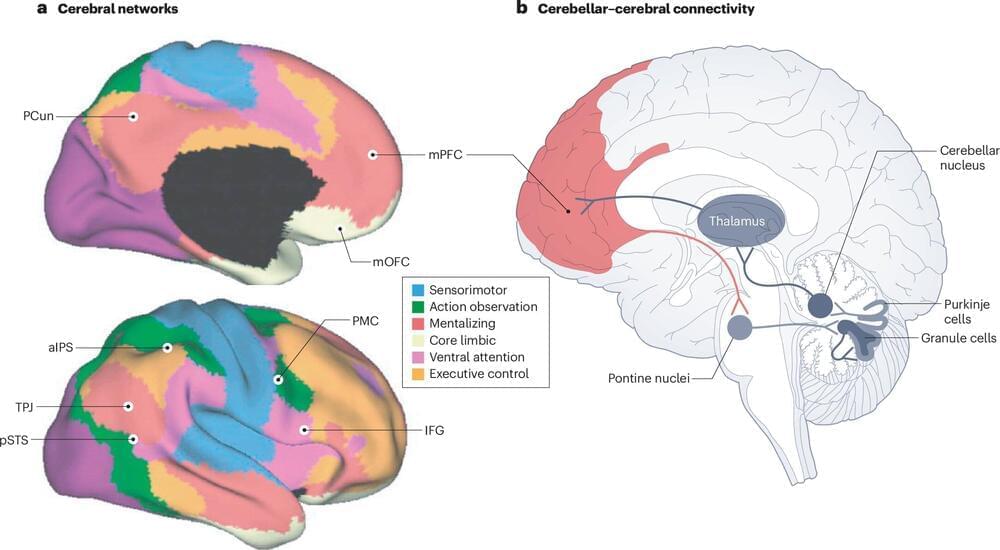
Research highlights crucial role of cerebellum in social and cognitive functioning
In a recent publication in Nature Reviews Neuroscience, Professor Frank Van Overwalle, from the Brain, Body and Cognition research group at the Vrije Universiteit Brussel (VUB), sheds light on the often-overlooked role of the cerebellum in both motor and social-cognitive processes. His research contributes to a growing shift in the field of neuroscience, which has traditionally focused on the cerebrum.
For decades, the cerebellum was primarily associated with motor coordination. “People with cerebellar abnormalities often experience motor issues,” Van Overwalle explains. “For example, they struggle to smoothly touch their nose with a finger. These difficulties highlight the cerebellum’s essential role in refining motor movements.”
However, Van Overwalle’s research extends beyond motor functions, exploring the cerebellum’s involvement in social and cognitive abilities. His findings reveal that abnormalities in the cerebellum not only lead to motor deficits but are also linked to emotional and behavioral disorders. He references research on individuals with autism, demonstrating how non-invasive brain stimulation techniques like magnetic stimulation can improve social task performance.